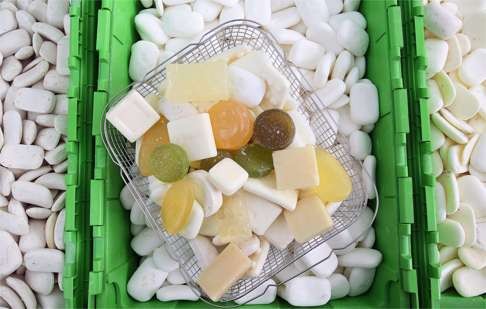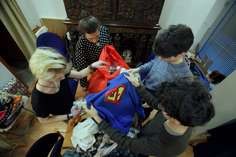
Less materialistic young people are leading the charge to a sustainable future
Bernard Chan sees hope in the younger generations here and elsewhere who are taking action to change the wasteful consumption habits that our modern economy depends on

I recently attended a Consumer Council conference on sustainable consumption. The basic question was: how can we have the material things we need and enjoy, while leaving our children with a world that can meet their needs too?
Secretary for the Environment Wong Kam-sing explained the government’s own internal measures, such as the adoption of detailed green procurement guidelines. And he mentioned regulatory moves, like energy efficiency labelling requirements, which we will see in future when we buy household electronic goods.
Many other organisations, from schools to companies, are exploring ways to consume in a more sustainable way. Efforts to measure and reduce carbon footprints are an obvious example.
There is a real debate, however, about how we can change people’s behaviour. Some environmental activists feel strongly that the government should take the lead through stronger laws and enforcement. I can see how this can be effective when public opinion outweighs resistance from vested interests: the administration’s plan to completely ban trade in ivory is a good example. But I am sceptical about how much we can simply force consumers – and the companies who produce goods and services – to change.

How much could people save during their working lives, if they used phones for five years, always got shoes repaired, and never threw away leftover food?
I would like to see more “producer responsibility schemes” to get industries to take back things like glass bottles and electronic equipment. But that idea would encounter resistance. There are limits to what people will accept in a free society.
Our modern economy is, in some ways, based on overconsumption and waste. In developed economies like Hong Kong, nobody repairs basic consumer equipment any more – people just throw things out and get new ones.
Working in financial services, I wonder just how much more prosperous we could be if we consumed only what we needed. People complain that they do not have enough saved for their retirement. But how much could they save during their working lives, if they used phones for five years, always got shoes repaired, and never threw away leftover food?

As things are, manufacturers and retailers rely on overconsumption. Jobs depend on it. Maybe slower economic growth and the ageing population will persuade people to be smarter consumers. The worst-case scenario is that climate change and overflowing landfills will shock people into accepting change.
Our best hope is probably the younger generation.

Elsewhere, younger people are using private cars less than their parents and using public transport more. In Japan, groups of young people involved in start-ups are moving into depopulated villages rather than driving new development in urban areas.
New business models are allowing people to own things temporarily – like Milan Station in Hong Kong, where several women will take turns to rent a luxury handbag. Internet apps are encouraging pooling and sharing of transport, accommodation and even things like peer-to-peer rental of household equipment. The young are also leading the fight against consumption of shark’s fin and sustainable sourcing of food.
Unlike the older generations, they were brought up with all they want, and they do not see ownership of items as a big deal. They do not view wasteful behaviour as a status symbol. My hunch is that a less materialistic younger generation will show us the way forward.
Bernard Chan is a member of the Executive Council